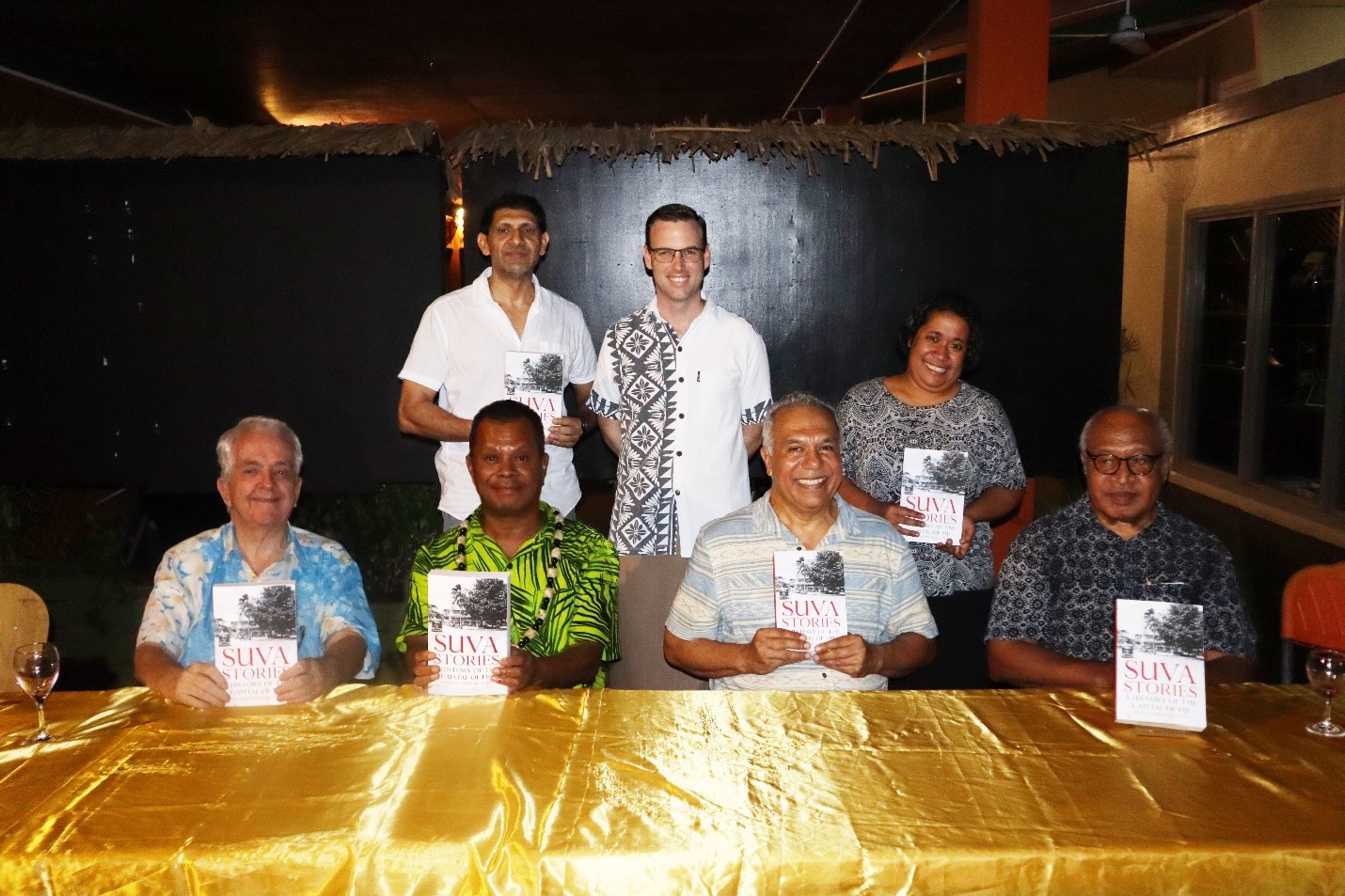Related News

Suva Stories: A History of the Capital of Fiji is not just the latest publication on history, but it is also a new glimmer of hope for Pacific historians.
This comes after the recent launch of the book that has been penned by academics, historians, and the very people who have lived to see their time now etched into a book about history put together by Dr Nicholas Halter of the School of Law and Social Sciences (SoLaSS) at The University of the South Pacific (USP), Laucala campus.
Editor and USP Senior Lecturer in History, Dr Nicholas Halter, said, “The book actually started as a teaching exercise; we had some third-year history students, and we were thinking about ways to make history a bit more exciting for them, so we developed a history app, and since most of our history students are based in Suva most of them went out and walked the streets of Suva to try and record the histories of the different buildings and places in the town.”
“They were really interested in that, and through that research, we realised there wasn’t much written about Suva, only one book and a thesis in the 60s and 70s, so we thought Suva being such a longstanding capital city deserved more attention. We then started on a project of finding authors, trying to find people within and also outside of USP; even residents who weren’t necessarily academics shared their stories about Suva,” Dr Halter added.
To mark International Museum Day (May 18), the Fiji Museum hosted a book launch for Suva Stories: A History of the Capital of Fiji. Edited by Dr Nicholas Halter, the book features a number of chapters by USP staff, including Paul Geraghty (Linguistics), Robert Nicole (Politics), Anurag Subramani (Literature), Anawaite Matadradra (History), Vijay Naidu (Development Studies) and Larry Thomas (Oceania Centre) and the late Professor Brij Lal.
It took 18 authors to put the entire book together; however, it also came with its challenges, the major one being the COVID-19 pandemic.
“COVID put a bit of a spanner in the works, but then it actually worked out well because people were in lockdown, and our authors had the time to sit down and write their chapters, so we ended up getting about 25 chapters, but we had to cut down some of the chapters to I think 19 chapters, and that’s what we ended up with, and it’s quite a sizeable book now. We were able to launch it online last year, but we got some print copies and were able to launch it in Suva this year,” Dr Halter said.
He said, “I think for those that aren’t even into academic reading, there’s a good part of the book that is personal reflections, so hopefully, it captures the attention of people outside of USP.”
Suva Stories: A History of the Capital of Fiji charts the trajectory of Suva from an indigenous village to a colonial hub to a contemporary Pacific metropolis, and it draws on a rich colonial archive and moving personal memoirs that bear witness to their time. It also contains a chronological timeline, maps, and over fifty historical photographs from Fiji Museum and National Archives. “This idea for this book began just before COVID broke out, and I am so proud of our authors who collaborated with me and persisted with their writing to produce a truly unique collection of historical scholarship and reflections”, said Dr Halter.
Dr Halter is hopeful that this new publication helps shed some light on the history of Fiji’s capital and that it will also capture the interest of students from USP who want to know a bit more about where they’re living and when they do research on places like Suva there’s a whole book of Suva that students can use as a starting point.
He said, “Also, for me, I also have a bigger plan, and that is to try and encourage some of our postgraduate students to do some history of towns and places in the islands. I think we really need a history of Labasa or a history of Nadi, which are topics that people from those areas best write about. So, I think that’d be great topics for Master’s students or PhD students. So I’m trying to see if we can encourage some post-grad students just to look at the histories of those urban areas because they’re interesting spaces.”
Dr Halter is also optimistic that this new book will boost interest among young people to carry out more work about Pacific History.
Copies of Suva Stories: A History of the Capital of Fiji can be downloaded for free from the Australia National University (ANU) Press website.
“I am very pleased that the book is free online, and I hope it will be a useful resource for the public in the future”, said Dr Halter. “Our next step is to get the ANU Press registered on SCOPUS so that the Research Office can recognise our publication.”
Dr Halter is continuing his research on Suva history in collaboration with Waikato University to support student summer scholarships for archival research in 2023.
Suva Stories: A History of the Capital of Fiji (ANU Press) http://doi.org/10.22459/SS.2022